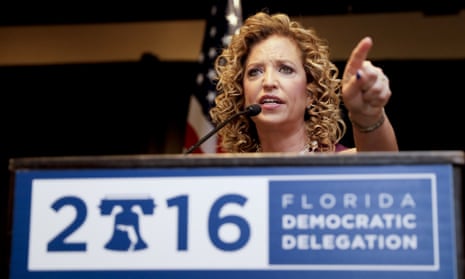The leak of emails stolen from America’s Democratic National Committee came from WikiLeaks; but the theft itself has been plausibly attributed to Russian hackers, working with at least the blessing of the state. This seems to mark a new development in the constant struggle of propaganda and disinformation.
There is nothing new in spying on the political processes of enemy states, and nothing new in the use of slanted information, but this story shows how technology has made both easier. One of the greatest feats of this sort was actually carried out by the British intelligence services in 1917 when they cracked an encrypted telegram from the German foreign ministry to the German ambassador in Mexico because it had passed through a relay station on Lands End. The Zimmermann telegram, as it became known, instructed the ambassador to offer Mexico unlimited subsidies, and the reconquest of the states of Texas, New Mexico and Arizona if only Mexico would declare war on the US after the US declared war on Germany. Mexico was unimpressed, since it judged that it did not have the troops, nor Germany the money, to make it feasible. But the American public was outraged, and this fury helped propel the US into the first world war and so doom Germany.
The Russians, if it is they, have some way to go to top that. Debbie Wasserman Schultz, the chair of the Democratic National Committee, has been forced to resign after the leaked emails showed her to be at best untroubled by the prospect of a Hillary Clinton candidacy, while some of her subordinates were actively suggesting ways to campaign against Bernie Sanders using such things as his atheism against him. It would be a very odd political race in which professional politicians did not have sympathies for one side or the other, even when they were not supposed to do so.
Yet beneath this placid surface there are strong and dangerous currents. The first is the extreme difficulty of telling whether any given group operating out of Russia is an organ of the state or not. It is easy to get sucked down into conspiracy theories. The leaks have been used by the Clinton campaign to suggest that the Russians would prefer a President Trump, which is a remarkably ingenious counterspin if they were in fact intended as hostile propaganda against the Democrats. Meanwhile, the Republicans use them as evidence of a corrupt and conniving Democratic establishment. Both cases are examples of a more evolved and perhaps more effective kind of spin in a suspicious age than using purported experts on a television channel. Many people today would far rather believe something that appeared to be leaked than anything presented in a more straightforward fashion. There are, you might say, lies, damned lies, and genuine leaked documents.
It is easy, obvious and right to call for greater security with email and other means of communication to guard against such attacks. But it doesn’t get us very far. Attacks are likely to persist, and to succeed, for the foreseeable future. No matter how technologically secure strong encryption remains, humans will always be there to weaken the security of any system. One answer is never to put anything into an email that might be hacked, but then it would become even more useless a means of communication than it already is. The deliberations behind crucial decisions are almost by definition things that cannot be made public at the time.
We don’t know how much more will be leaked, and when. But it is safe to assume it will be timed and arranged to cause the maximum damage to the Democrats. Already, some of Senator Sanders’ delegates have booed him for endorsing Senator Clinton. These are dangerous passions. Both sides need to remember that a Trump presidency would threaten a fate much worse than the election of the wrong Democrat, to calm down, and to carry on together.
